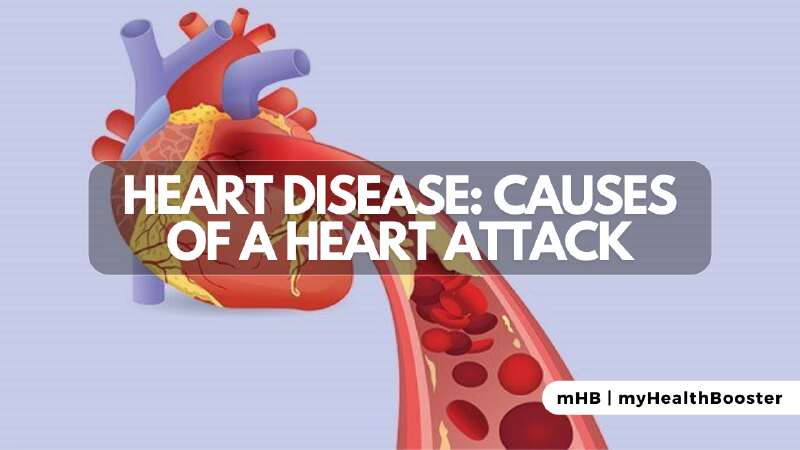Heart disease encompasses various conditions affecting the heart, including coronary artery disease, heart failure, cardiomyopathy, heart valve disease, and arrhythmias. This article delves into the primary cause of heart attacks, emphasizing the importance of awareness, early identification, and preventive measures.
Coronary Artery Disease (CAD)
Coronary artery disease, a prevalent form of heart disease in the United States, stands as the leading trigger for heart attacks. It involves the narrowing or partial obstruction of coronary arteries, limiting blood flow and potentially leading to severe consequences such as angina and heart attacks.
Heart Attacks: Stages and Symptoms
Understanding the stages of a heart attack is crucial for saving lives. When a coronary artery becomes blocked, often by a blood clot, a segment of heart tissue loses its blood supply. Quick emergency treatments, including catheterization, are essential to minimize tissue damage. Recognizing symptoms like chest pain, shortness of breath, weakness, and irregular heartbeats is pivotal in seeking immediate medical assistance.
Distinct Heart Attack Symptoms in Women
Women may manifest different heart attack symptoms than men, such as jaw pain, shortness of breath, and nausea. Recognizing these distinctive signs is imperative to avoid delays in diagnosis, ensuring prompt treatment and reducing the risk of further complications.
Coronary Artery Disease Symptoms
Reduced blood flow to the heart, known as angina, serves as a warning sign for potential heart problems. Plaque buildup in coronary arteries can lead to chest pain and, in severe cases, result in a heart attack. Understanding these symptoms aids in early detection and intervention.
How Plaque and Blood Clots Contribute to Heart Attacks
Plaque, a sticky substance in arteries, can rupture and trigger blood clot formation, obstructing blood flow and causing damage to the heart tissue. Recognizing these mechanisms underscores the importance of early identification and treatment to prevent severe consequences.
Early Intervention and Sudden Cardiac Arrest
Timely recognition of heart attack symptoms is paramount. Calling 911 immediately and avoiding self-transport to the hospital ensures prompt emergency medical services. In addition to addressing blocked arteries, interventions like CPR and defibrillation can be lifesaving, restoring normal heart function.
Types of Heart Diseases
Cardiomyopathy, characterized by abnormal heart muscle, and heart failure, where the heart struggles to pump sufficient blood, are among the diverse heart conditions discussed. Understanding these variations is crucial for tailored treatment approaches.
Congenital Heart Defects
Present from birth, congenital heart defects may require surgical repair. Advances in medical science allow for effective treatment, minimizing complications associated with these defects.
Heart Disease Testing
Diagnostic tools like EKGs, stress tests, Holter monitors, chest X-rays, echocardiograms, and cardiac CT scans provide valuable insights into heart health. Cardiac catheterization is a crucial procedure for identifying and treating arterial blockages.
Living with Heart Disease
Adhering to medical advice, medications, and lifestyle modifications is key in managing chronic heart conditions. Recognizing persistent symptoms and seeking immediate medical attention ensures optimal care.
Heart Disease Treatment
Medications, angioplasty, stent placement, and bypass surgery are discussed as treatment options. Tailored approaches, depending on the severity and nature of the condition, are crucial for effective management.
Risk Factors and Prevention
Understanding modifiable risk factors, such as diabetes, elevated cholesterol, high blood pressure, lack of physical activity, and smoking, empowers individuals to take control of their heart health. Lifestyle modifications, including a heart-healthy diet, regular exercise, and stress management, play pivotal roles in prevention.
Heart-Healthy Diet
A diet rich in fruits, vegetables, whole grains, nuts, and fish, while limiting saturated fats, trans fats, red meat, and sodium, contributes significantly to heart health. Adopting a predominantly vegetarian diet may even reverse certain aspects of coronary artery disease.
Summary
While heart disease is a prevalent health concern, early awareness, lifestyle modifications, and prompt medical intervention can significantly reduce its impact. Understanding the causes, symptoms, and preventive measures empowers individuals to take charge of their heart health and lead fulfilling lives.
References
- American Heart Association: “The American Heart Association Diet and Lifestyle Recommendations,” “Cardiac Catheterization,” “Cardiac Computed Tomography (Multidetector CT, or MDCT),” “Cardiac Medications,” “Cardiac Procedures and Surgeries,” “Chest X-Ray,” “Echocardiogram (Echo),” “Exercise Stress Test,” “Electrocardiogram (ECG or EKG),” “Heart Attack Symptoms in Women,” “Holter Monitor,” “How to Help Prevent Heart Disease at Any Age,” “Life After a Heart Attack,” “What Is Coronary Angioplasty?”
- Center for Disease Control: “Heart Disease,” “Heart Disease Facts,” “Other Conditions Related to Heart Disease.”
- National Heart, Lung, and Blood Institute: “The Heart Truth,” “IN BRIEF: Your Guide To Living Well With Heart Disease.”
- Texas Heart Institute: “Heart Disease Risk Factors.”
